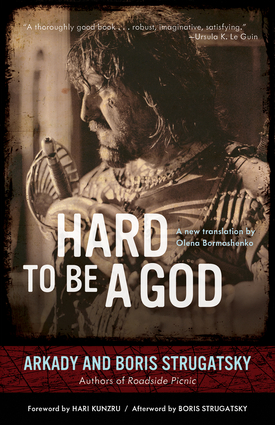I'm at my mom's. Here's an old school assignment we dug up.
*************
Egg Man
- from aged, yellowed lava — when world created & volcanoes erupted
- yellow slime slithered, hardened with white foam covering on outside
- form of egg — were coloured white, yellow, beige, brown
- rolled about, wobbled
- few were cracked on rock — died
- most had 8-10 distinctly brow cuts used as mouths
- became very sacred — worshipped
- held ceremonies each night around fire
- first people ever created
Bacon Man
- third people to survive
- were created later than Egg Man
- live volcanic lava came together
- lava stuck and became Bacon Man
- sizzled, slithered around ground
- worshiped sun greatly — not fire, idol of Egg Man
- had not but 1 mouth
- communicate with bubbles
- were killed once all bubbles were scraped
Thing Man
- were created shortly after Egg Man far, far away — on a different planet out of our universe
- nobody knows of its background before they came to planet of Egg & Bacon
- head resembled bird, body of human, limbs & tail of pig
- worshiped dark — were blinded by any type of light except their own light
- light was of gloomy-oomy glow
- Thing Man was noisy — squawked & squealed at all times
- hated the quiet
LEGEND
Once a long time ago, Egg Man wandered the earth. He came upon Bacon Man and they travelled together. Their ways disagreed with each other — so they fought. The fighting was rough. Many peoples were killed. Strangely enough, no sound came of the fighting. Thing Man (which had come to "Planet of Bacon & Egg" by strange means) had roamed half way across the earth & dirt to the sight of the battle. The quiet of the fighting killed half of the tribe of Thing Men. The others decided to do something about this lack of noise. The Thing Men squawked & screamed and made the Egg & Bacon Men suffer, for they hated noise. But Egg & Bacon Men fought on. Thing Men decided that the only way to get rid of the quiet was to get rid of the other peoples. So the Thing Men pounced upon the others, ate them, and then there was noise. So the Thing Men travelled back to their own planet in their own universe.
This planet came to be known as "Earth." Thing Man evolved into 3 different things: the heads into chickens, the limbs & tail into pigs, and the body into a human (strange, isn't it). The humans still eat dead Bacon & Eggs. The Eggs come from the chickens. The Bacon comes from dead pigs. Few people know of Egg, Bacon & Thing Man and if you don't believe they ever lived, go ahead and think so. If you think they didn't 'live' in the sense that would most properly be understood today, you're right. Egg, Bacon & Thing Man live in imagination and mind.
Day of Egg Man
Once a year on every March 21st Egg Men would celebrate the beginning of life. That is why to this day the "egg" is thought of as the symbol of life. Well anyway, the Day of Egg Man was to them the most important day of the year. On this day they would paint each other with bright colours to show their happiness and thanks to their gods.
I.A.K.
*************
Things I love about this essay:
- It goes from the first people to the third people. But who were the second? Why not present them chronologically? Suspense!
- "had not but 1 mouth" — Who writes like that? (Yeah, I know, I do.)
- So Bacon Man dies once he loses the ability to communicate...
- "gloomy-oomy"
- The noise. Oh, the noise, noise, noise, noise. I feel somewhat Grinch-like in my aversion to noise. I'm surprised to see it manifested so early. Or maybe the legend's message is anti-quiet, I dunno.
- How the narrator is suddenly inserted into the text (strange, isn't it).
- The Twilight Zone-y ending. I can just hear Rod Serling narrating the last few sentences of the Legend over the fade-out.
There's no date. It's printed, which makes me think it might be earlier, but I sign off using my middle initial, which puts me at grade 6 (a new school, so trying out a new identity), and 11 years old. In grade 7 we read Asimov's
I, Robot, which should've influenced me to write something a little more mature. I can't imagine what the assignment actually was.








